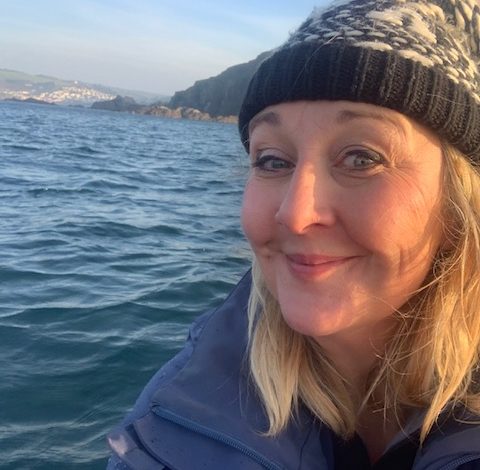What the current economic climate means for the hotel industry
By Angela Cameron, business development director at Cab Hospitality

When I speak to my colleagues and hotel friends about how they’re dealing with the current economic landscape, there’s one word that just keeps cropping up: creativity. Creativity, for better and for worse, is definitely the watchword.
It’s no secret that we hospitality people love a good debate about how the economic climate affects our businesses, and we have never been more engaged in financial and political ups and downs than during the last three years. I sometimes struggle to believe that it’s almost three years since we started to hear stories about a mysterious disease emerging in a far-flung corner of the globe, and that it might impact our hotel businesses at some stage.
As an industry, we have always clubbed together to share knowledge, learnings and ideas about national and global events; this has enabled us to better understand the peaks and troughs in our own businesses, and to make informed day-to-day decisions about acquisitions, rates or operational matters.
I’m not alone in feeling as if we’re in a tumble dryer of events and that, every day, someone opens the door and throws something else in: lockdowns; traffic light systems; restrictions; curfews; staffing crisis; Brexit; cost-of-living crisis; inflation…the hits just keep coming, and we know them all too well.
What does this mean for owners and teams on the ground? Last year, I moved out of the world of direct hotel brand and marketing management and into an agency where I use my years of knowledge to help a number of independent hotels and small hotel groups. I speak to owners and teams within these properties every day, and I believe that our shared experiences and observations really help us all to make more sense of the hotel climate. If nothing else, we are each other’s sounding board in a dizzying world of facts and figures.
So, what are the main things that I’ve discovered? In terms of demand across the independent hotel market, some things seem to be very clear. Occupancy and rate amongst the top-tier boutique properties continues to be strong; their recession-proof audiences of high-income travellers and post-Covid, pent-up demand makes sure that they hit their budgets.
Whilst some of these properties are having to work harder to secure bookings out of season, their rates remain much higher than those of 2019, with no sign of reduction into the early months of 2023. As with all businesses, rising costs will impact on their bottom line, but confidence in their rates means that, generally, they will emerge on the other side in good shape. Where I have seen the greatest impact is in the four-star equivalent upscale market, where the aspirational traveller audience have taken the decision to ‘wait and see what happens with the economy’ before booking that extra break ahead of Christmas. Their mid-week retired audience, who would have filled the ‘out of season’ troughs, will be extra cautious with their money at a time when they face huge energy bills and a rise in food costs. It’s here in this section of the market where I’ve seen owners and sales teams battling with their own huge increases in food and energy costs, set against a backdrop of falling demand and winter rates.
As ever in difficult times, I look out into the market and see what other hotels are working on nationally. For a hotel sales veteran, it is easy to see that November demand in out-of-town locations is dramatically lower than of late. Autumn sales abound and the rates to stay in some of the most beautiful boutique properties dinner inclusive are remarkably competitive.
For the traveller, it’s an excellent time to book if you do have the spare cash; for the hotel owner, it means a big impact on profits and questions for their sales teams about their input and effectiveness. An ongoing recruitment crisis means that cutting back on staffing costs is out of the question for some hotels as the headcount is already too low. Some of the work we have done with our clients using CRM automations and tech audits has meant that they are in a stronger position now to ensure that they’re covering all of the marketing bases whilst their teams work on strategies to help with this winter.
For already beleaguered teams front of house, they are working with guests who are watching every penny and expect excellent value for money for their stay – more so than ever before. This can make for a more demanding gaggle of guests, at a time when team support is still thin on the ground and the post-Covid goodwill and understanding evaporated quicker than the ‘be kind’ signs could dry.
In the face of this, owners have had to be more thoughtful and inventive with pay, contract terms and general working conditions in order to attract new talent. This was, of course, long overdue and the right thing to do, but it will take time to become the norm and help to attract school leavers into the industry. I recently heard Veryan Palmer, director at The Headland Hotel in Cornwall, talk about an amazing innovation she had created to attract local school pupils to work in the hotel during peak season by engaging with them in meaningful training, working with their families to involve them in the hotel. An excellent example of creativity in these times.
I believe that the industry leaders who put the guest at the centre of everything they do will be the ones to recover the quickest and best out of this downturn. I’ve seen some wonderful new ideas from Chris Penn and the team at Birch who don’t even call themselves a hotel – they’re just here to create amazing experiences for their community of guests. They’re tearing up the hotel rule book and recycling it as a newer, more conversation-worthy document to be changed again and again. Brands and rebrands are happening across our client portfolio which embrace the new traveller, a traveller who is passionate about sustainability, service and experience. This is what will set apart one hotel from its more traditional counterparts.
From a people and talent perspective, some of the bigger hotel groups are starting to offer the four-day working week – something that we would never have dreamed of when I started out 20 years ago, but that will ultimately make our industry more attractive and secure in the long term. The current climate encourages hotels to compete for guests’ bookings, but it also pulls us together to find a way through it. Ultimately, we need to work together if we’re all to come out on the other side.









